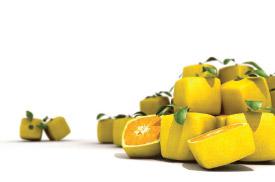NCGA Partners with Retailers in Organic Fraud Detection

Shoppers are increasingly looking for healthful, ethical choices when it comes to buying food. As a result, the growth of the organic food industry continues at an incredible pace, averaging between 15 and 20 percent every year since 1998. Growth in organics is a great thing; it means more consumers are being exposed to organics and sustainable food choices. Unfortunately, as the organic market has grown, so has the temptation for fraud.
Consider the facts: Organic supply struggles to keep up with demand, leading to shortages and accompanying price increases, downward pressure on organic standards, and increases in organic imports from countries with questionable histories of sustainable practices. Combine this with insufficient funding for enforcement of standards and widespread media coverage of events like organic labeling violations and food safety scares linked (incorrectly or not) to organics, and you realize that the growth in organics could actually lead to decreased consumer confidence in them.
So, what to do? Clearly, preservation of organic standards and consumer confidence in those standards is critical to our work. That’s why National Cooperative Grocers Association (NCGA) is partnering with Hanover Consumer Cooperative Society, PCC Natural Markets, and Unified Grocers on a pilot program to explore the implementation of the first system-wide, retailer-based organic fraud detection and prevention program.
As part of this initiative, NCGA has contracted with the International Organic Accreditation Service (IOAS) to determine appropriate methods retailers could undertake to limit the incidence of fraudulently traded organic products and to increase the chances of early detection when it takes place within the retail supply chain. The pilot includes the development of a retailer-based program to institutionalize these methods.
The pilot is being conducted as an “open source system,” meaning that while NCGA is a partner retailer in the project, we recognize its importance for protection of all organic consumers and the sector itself. As a result, any recommended program would be made available to other retailers.
To achieve the project goals, the pilot aims to do the following:
- identify the most suitable auditing methods to detect fraud;
- establish the nature of a system to oversee and ensure implementation at all levels;
- establish the costs of implementation and identify by whom they shall be borne;
- determine how the program might allow for all retailers to participate;
- identify any additional needs to ensure optimum fraud protection within the retail sector.
Our program will not change how organic products are certified. Rather, we’re seeking to add a very critical safety checkpoint in the supply chain that will empower retailers and provide peace of mind for organic customers.
Food co-ops have been leaders in the organic industry for decades through education as well as providing shoppers with great-tasting organic food that’s healthy for people and the planet. What better way to demonstrate the value we place on our consumer-owner’s trust than to voluntarily put added measures in place to be sure we are providing the goods they believe they are buying?
Partners with NCGA in Retailer Organic Fraud Prevention
- The International Organic Accreditation Service (IOAS) is a nonprofit company which undertakes accreditation of organic certification bodies throughout the world. It currently accredits 36 certification bodies through its IFOAM and ISO Guide 65 accreditation programs and is a recognized expert in the field of conformity assessment in the organic sector. www.ioas.org
- Hanover Consumer Cooperative Society is an NCGA member and one of the oldest consumer co-ops in the United States. In addition to two Co-op Food Stores, the Hanover Consumer Cooperative Society operates the Co-op Community Food Market and Co-op Service Center. www.coopfoodstore.com
- PCC Natural Markets is an NCGA member and the largest consumer-owned natural food cooperative in the United States. PCC has eight stores in the
Puget Sound region and is owned by nearly 40,000 members.
www.pccnaturalmarkets.com
- Unified Grocers is a retailer-owned wholesale grocery cooperative that provides grocery products and services to independent retailers throughout the western United States. Unified and its subsidiaries offer independent retailers all the resources they need to compete in today’s supermarket industry.
www.uwgrocers.com
***
Kelly Smith is director of marketing for National Cooperative Grocers Association ([email protected]).







